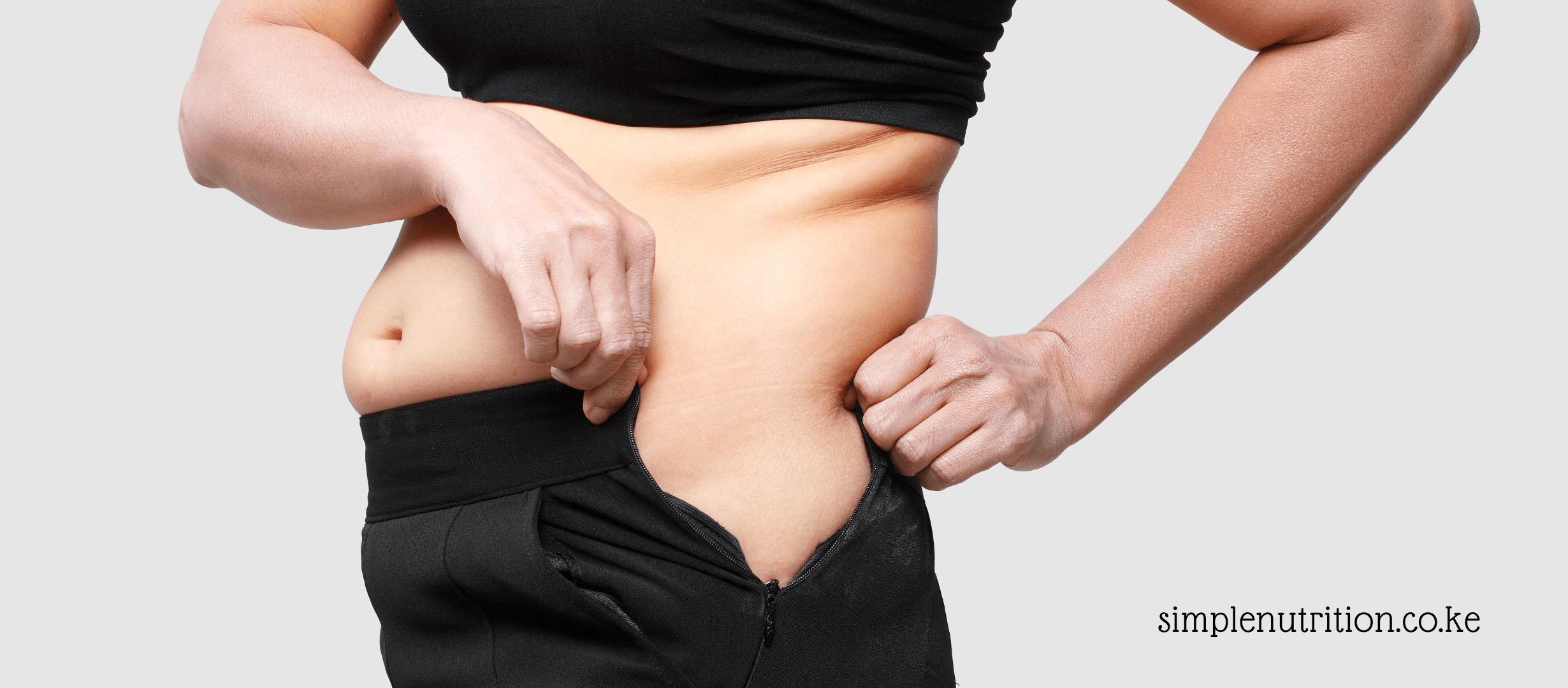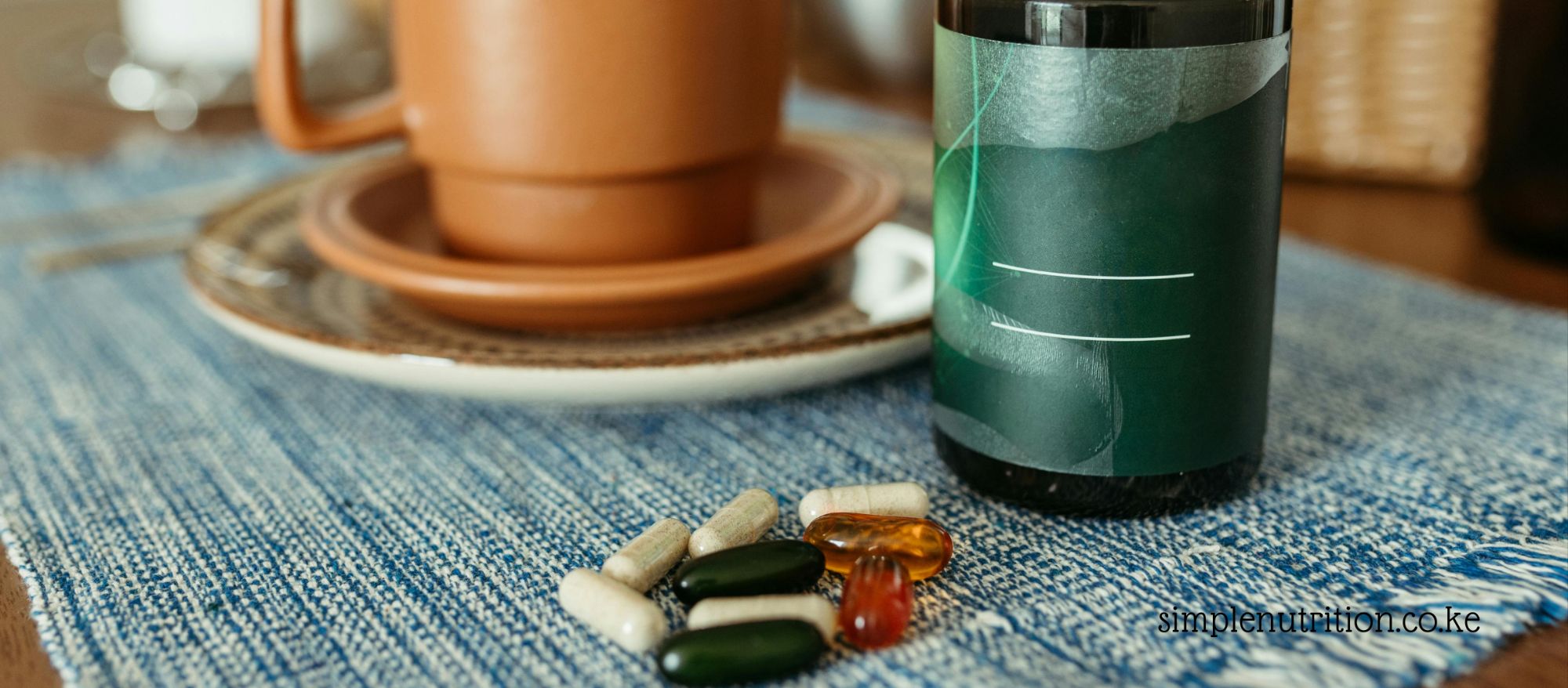Bloating is a condition characterized by a distended and swollen abdomen that can cause discomfort and emotional distress.
Although it can happen to anyone occasionally, persistent bloating may indicate an underlying health problem that needs attention. In this blog, we’ll look into the various factors that contribute to stomach bloating, including dietary choices, eating habits, and underlying health conditions. By understanding the reasons behind bloating, you can make informed choices for a healthier and more comfortable digestion.
Do you relate to that extreme feeling of passing gas, belching, or flatulence (intestinal wind passed through the anus) Embarrassing, don’t you think?
There are so many reasons why you may develop digestion disorders, in which bloating is one of them;
- Poor Nutrition.
- Bad posture when eating, lying down when eating for example.
- Eating too large a portion size of food.
- Eating too little portion size of food.
- Poor hydration (taking too little amounts of fluids).
- Allergies from certain foods can cause bloating.
- Eating foods that don’t go well with you, for one reason or another.
What is bloating?
Now, bloating means that your stomach is full of gas, making it look full, firm, and tight. It’s quite uncomfortable. When there’s excess gas in your stomach, you may pass the gas through the mouth (belching) or through the anus (flatulence).
It can be caused by a variety of factors, including:
- Digestive Issues: Certain foods, especially those high in carbohydrates, fiber, or fat, can cause bloating. Some people also experience bloating due to conditions like irritable bowel syndrome (IBS), constipation, or lactose intolerance.
- Fluid Retention: Consuming too much salt or hormonal fluctuations, especially during menstruation, can lead to water retention and bloating.
- Gas: Swallowing air while eating or drinking, as well as the natural breakdown of certain foods in the digestive system, can lead to the production of gas and bloating.
- Medical Conditions: In some cases, bloating can be a symptom of underlying medical conditions such as celiac disease, gastroesophageal reflux disease (GERD), or ovarian cysts.
Other causes bloating
- Eating Too Fast: When you eat too quickly, you’re more likely to swallow air along with your food, leading to gas and bloating.
- Smoking Cigarettes: Smoking can cause you to swallow air, leading to bloating. Additionally, smoking can irritate the digestive tract, exacerbating bloating and other gastrointestinal symptoms.
- Chewing Gum: Chewing gum can cause you to swallow air, leading to bloating. Some chewing gums also contain sugar alcohols, which can cause digestive upset and bloating in some individuals.
- Consuming Gas-Producing Foods: Foods like dairy products, legumes, and carbonated drinks can produce gas in the digestive tract, leading to bloating.
- Lack of Physical Exercise: Regular physical activity helps stimulate digestion and prevent bloating. A sedentary lifestyle can contribute to sluggish digestion and bloating.
- Consuming Fatty and Sugary Foods: Foods high in fat and sugar can slow digestion and contribute to bloating. Additionally, some artificial sweeteners used in sugar-free products can cause digestive upset and bloating in some individuals.
- Eating Cold Foods: Some people find that eating very cold foods can slow digestion and contribute to bloating, especially if they already have a sensitive digestive system.
The best way to cook beans is to prevent bloating.
Soaking beans helps to soften them and reduce their cooking time, while also aiding in the removal of some of the indigestible sugars that can cause gas and bloating. Cooking them with little fat and salt can help keep them healthier. This process not only helps to make the beans more digestible but also enhances their flavor. It’s a simple way to ensure you’re getting the most out of your beans while minimizing the likelihood of bloating.
This method has shown positive results in reducing flatulence related to beans and even pain in people who have gastric ulcer disease.
In other scenarios, maybe you will need to cut off these foods that get you bloated and replace them with better ones from the same food group to ensure nourishment.
Other changes like;
- Eating slowly and chewing food thoroughly to minimize the amount of air swallowed.
- Avoiding carbonated drinks and chewing gum, which can increase the amount of air swallowed.
- Limiting intake of gas-producing foods such as beans, broccoli, cabbage, onions, and certain fruits.
- Drinking plenty of water to help flush out excess sodium and reduce water retention.
- Regular exercise, which can help stimulate digestion and reduce bloating.
- Trying over-the-counter remedies such as simethicone to help break up gas bubbles in the digestive tract.
Bloating does not automatically mean that you ate too much, conditions like constipation can also cause bloating.
How do you prevent constipation?
- Foods Rich in Insoluble Fiber: Whole grains, vegetables, and legumes are great sources of insoluble fiber, which adds bulk to the stool and helps promote regular bowel movements. This can prevent constipation and reduce the risk of bloating.
- Hydration: Drinking plenty of fluids, including water, soups, and healthy drinks, helps keep the digestive system functioning properly. It helps soften stool and aids in digestion, reducing the chances of experiencing bloating or constipation.
- Regular Exercise: Physical activity promotes overall digestive health by stimulating the muscles in the digestive tract, which helps move food through the system more efficiently. It also helps to reduce stress, which can contribute to digestive issues like bloating.
- Limiting Fatty Foods: High-fat foods can slow down digestion and contribute to feelings of bloating and discomfort. By reducing intake of fatty foods, you can help keep your digestive system running smoothly and minimize the likelihood of bloating.
key points
- Papaya (Paw Fruit): Papaya contains an enzyme called papain, which can help break down proteins and aid in digestion. It also contains soluble fiber, which can help soften stool and promote bowel movements, making it a natural remedy for constipation.
- Maintaining a Healthy Weight: Sudden weight gain or fluctuations in weight can indeed contribute to feelings of bloating. Excess weight can put pressure on the abdomen and digestive organs, leading to discomfort and bloating. Maintaining a healthy weight through a balanced diet and regular exercise can help prevent this.
- Seeking Medical Attention: Chronic bloating, especially when accompanied by other symptoms such as abdominal pain, changes in bowel habits, or unexplained weight loss, could indicate an underlying medical condition such as irritable bowel syndrome (IBS), celiac disease, or inflammatory bowel disease (IBD). In such cases, it’s important to seek medical attention for proper diagnosis and treatment.
Discover more from Simple Nutrition
Subscribe to get the latest posts sent to your email.






